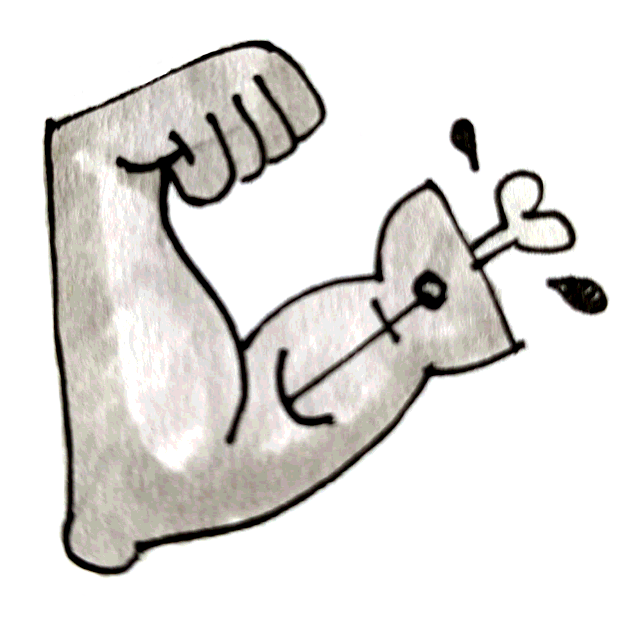https://youtu.be/eh3JBSffe7Y?t=240
Harry Hill stands on a bare stand against a plain blue backdrop with... is that a set of railings? The general sense is end-of-the-pier but it's hard to entirely put your finger on why. The only thing on the stage seems to be a white plinth and sitting atop this plinth is a pint glass of dark brown liquid. "Chop juice," according to Hill.
He's wearing his trademark black suit and white shirt with enormously oversized collar. His shoulders seem permanently raised as if mid-giggle. His bald head and big black glasses simply add to the effect that this is half man, half cartoon-character.
He's been delivering a series of non sequiturs for a while now. Some you might call one-liners, others are more like mini flights of fancy. –– insert examples ––
Then just when you're getting into the swing of these surreal jokes which are nevertheless perfectly attuned to his on-stage persona he says "elves".
"Elves," he says again. And then, "elves".
This set has been (and will continue to be) peppered with Hill's trademark asides and mutterings. He seems obsessed with the little additional things people say to paper-over the cracks in conversation, but somehow his choice of these, or maybe it's his delivery, renders them totally absurd.
"Elves," he says again, and then throws in a half-muttered, "one or two of you." What? Is he saying "one or two" of the audience are elves? Not really, it's just a little thing to say, it keeps us on our toes because in being senseless but sounding so reasonable, it keeps us thinking, we can't relax at all. It's utter genius.
"Elves," he says, and he keeps saying "elves," again, and again, over and over. Sometimes he points as if maybe he sees elves. Is he maybe implying that elves have infiltrated the theatre? He jumps as if scared by an elf. He smiles slyly as if sharing some secret knowledge, as if you know what he means. He swings around as if spotting elves everywhere.
Your brain reels, grasping for whatever scrap of sense you can.
What I like about this bit is that to me it lays bare one of the core concept of comedy, and one which I think shows us a little bit about what "violation" we might be scared of here.
We are pattern-matching creatures, and our brains are continually searching our external environment and parsing meaning from it. It's clear that this was vital for our survival, a good picture of what's going on around us is going to help us avoid danger. But we also apply this to verbal communications.
When a person is speaking we are constantly alert for meaning, for clues that tell us something useful, either about the world, or about the person themselves, their intentions, what they might do next.
When we are confused, this mechanism goes into overdrive. Desperately clawing at the information we receive to make any sense at all, to cling to any scrap of sense we can.
By reducing things down to a single word, Hill shows us clearly how this works. What is he talking about? His body language shows that he clearly means something. He looks confident, purposeful. He points his finger in a way that tries to show us something.
Yet we remain confused. He doesn't give us enough to piece together any coherent story.
This is a violation of the contract of conversation, or performance. We implicitly expect someone speaking to us to make sense. We expect to understand them. Yet, when they say things that we can't immediately understand it puts us into a place of stress. That might be subtle stress but nonetheless we become primed and ready. We don't know what will happen next.
Then Hill follow this string of repetition with the phrase, "very talented, very entertaining," an we're thinking, OK, he's talking about elves, do those words apply to elves? I mean, "talented", for sure, but "entertaining" is more of a stretch. Although, being mythical creatures, being associated with Santa, being part of the kind of stories we tell to kids, yes, sure, OK, maybe I can go with entertaining.
Then he says "Elves" a couple more times.
Then he stops and looks at the audience and says, "My particular favourite was Heartbreak Hotel."
Oh, he meant "Elvis!"
It's a pun.
He knows it's a pun. It's one of those cruel puns works as a pun, but is also funny in a meta way because of the implication that such a weak joke is good enough for this occasion. He's lead us down the garden path and the resulting reversal is so stupid it's joyful. Comparing it to other puns where two meaning sort of sit at angles to each other, and it hardly holds up, it's a mishearing, but isn't that what all puns are?
<- Back
